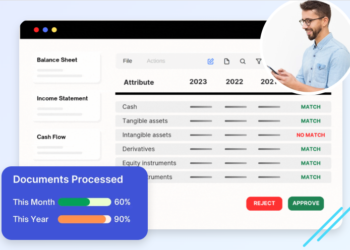In today’s tech-driven world, artificial intelligence (AI) is transforming how industries function—and Compliance Jobs are at the forefront of this shift. Traditionally centered around ensuring that organizations adhere to legal standards, regulations, and ethical norms, compliance roles are now increasingly influenced by AI-powered tools. This shift presents a fundamental question for businesses and professionals alike: Does AI oversight enhance ethics in compliance, or does it simply prioritize efficiency?
The Evolution of Compliance Jobs
Compliance Jobs have historically involved a high degree of manual review—tracking policy changes, scrutinizing financial transactions, and conducting internal audits. These responsibilities require accuracy, diligence, and ethical clarity. However, the explosion of data in the digital age has made it nearly impossible for human teams alone to manage these tasks efficiently. Enter AI.
AI technologies can now automate many functions once reserved for compliance professionals. These include transaction monitoring, behavior analysis, fraud detection, and even predictive risk assessment. The result is a seismic shift in how Compliance Jobs are executed.
If you’re curious about how AI is specifically shaping these roles or looking to transition into the field, you can Find Out More through industry-specific training and certifications available online.
Efficiency Gains: The AI Advantage
From a practical standpoint, the integration of AI into compliance operations delivers several compelling benefits:
- Speed and Scalability: AI systems can analyze vast amounts of data in seconds, enabling real-time monitoring and quicker decision-making.
- Reduced Operational Costs: Companies can optimize headcounts by automating time-consuming tasks, freeing up compliance officers for higher-level responsibilities.
- Enhanced Accuracy: AI tools can detect patterns and anomalies with a level of precision often unattainable by humans.
- Proactive Risk Management: Predictive models help organizations identify and address potential compliance violations before they escalate.
These efficiency gains are making Compliance Jobs more strategic and less administrative. For professionals already in the field or those considering a career switch, the impact of AI is both a challenge and an opportunity. Check over here to explore how compliance professionals are adapting and upskilling to stay competitive.
The Ethics Dilemma: Can AI Be Trusted?
While efficiency is a major plus, AI brings with it serious ethical and oversight concerns. Compliance, at its core, is about ensuring fairness, transparency, and accountability. When AI is used to make or influence decisions in these areas, several risks emerge:
- Algorithmic Bias: If AI systems are trained on biased or incomplete data, they may produce discriminatory or unethical outcomes.
- Lack of Explainability: Many AI models operate as black boxes, meaning it’s difficult—even for their developers—to explain how decisions are made. This lack of transparency poses a problem in regulated environments.
- Privacy Concerns: Compliance often involves sensitive data. AI systems must be tightly governed to prevent data misuse or unauthorized access.
- Overdependence: Relying too heavily on AI can erode human judgment, which is critical in interpreting context and nuance in compliance scenarios.
These concerns have prompted companies to establish AI oversight mechanisms and ethical review boards. However, it’s still a developing area, and much depends on how organizations structure their governance models.
AI + Human Collaboration: The Balanced Approach
The most successful applications of AI in Compliance Jobs aren’t those that fully automate, but those that augment human capabilities. A hybrid model that blends machine efficiency with human ethics can deliver optimal results.
- Human-in-the-Loop: Let AI do the heavy lifting (data processing, initial assessments) while humans make the final calls in complex or sensitive cases.
- Ongoing Audits and Monitoring: Regular reviews of AI performance ensure the technology evolves with regulatory standards and remains unbiased.
- Clear Documentation: All AI-assisted decisions should be transparent and traceable to maintain accountability.
The Future of Compliance Careers in an AI Era
As AI becomes an integral part of corporate governance, Compliance Jobs will evolve significantly. What remains are higher-level tasks that demand judgment, strategy, and ethical reasoning.
Future compliance professionals will need to:
- Navigate AI-integrated systems confidently.
- Interpret AI-generated insights in regulatory contexts.
- Serve as ethical gatekeepers in a landscape increasingly governed by algorithms.
Those who embrace this shift will find abundant opportunities, as demand for AI-literate compliance experts is expected to surge. Interested in taking the next step? Find Out More about upskilling opportunities and future-proof career paths in compliance technology.
Final Thoughts
The integration of AI into compliance functions is not a question of “if” but “how.” Companies that approach this transition with care—prioritizing both performance and ethics—will gain a competitive edge and build stronger, more transparent organizations.
For professionals, now is the time to rethink the skills and mindset needed in modern Compliance Jobs. Whether you’re just starting or you’re a seasoned compliance officer, aligning yourself with ethical AI practices and staying updated on technological trends will be key to thriving in this evolving field.
If you’re ready to explore resources, connect with experts, or begin your journey in AI-enhanced compliance, check over here for curated content. Or, for deeper discussions and case studies, go right hereto access global insights and join professional forums on the future of compliance.






